The Key to Heart Health
Understanding Blood Pressure: The Key to Heart Health
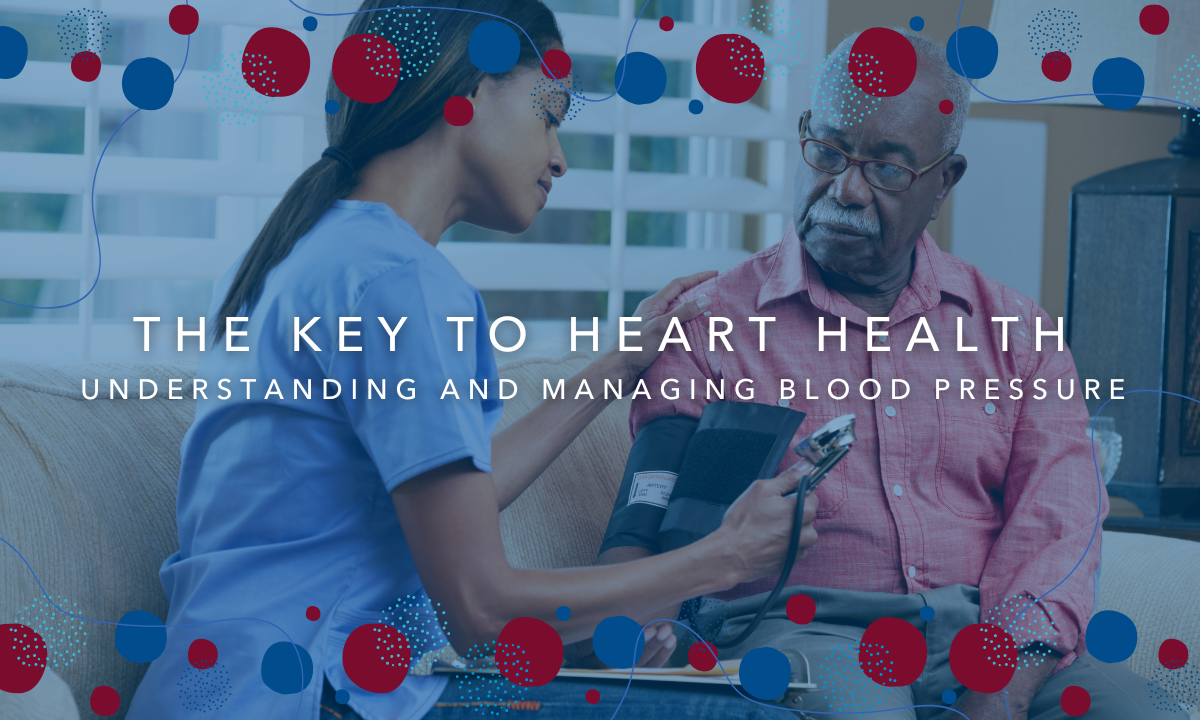
High blood pressure, also known as hypertension, is a serious condition affecting millions of people in the United States every year, and it poses a significant threat to heart health. Untreated hypertension can lead to heart disease, stroke, kidney failure and other severe health problems. However, the key to protecting your heart lies in understanding blood pressure, recognizing the risks of hypertension, and taking proactive steps to manage it through lifestyle changes and, when necessary, medication.
The Foundation of Heart Health
Blood pressure is the force of blood pushing against the walls of the arteries as it flows through them. It is determined by two key factors: the amount of blood the heart pumps and the resistance to blood flow in the arteries. Your blood pressure rises and falls throughout the day, depending on factors like physical activity, stress, and diet. This fluctuation is normal, but consistently elevated pressure is a concern.
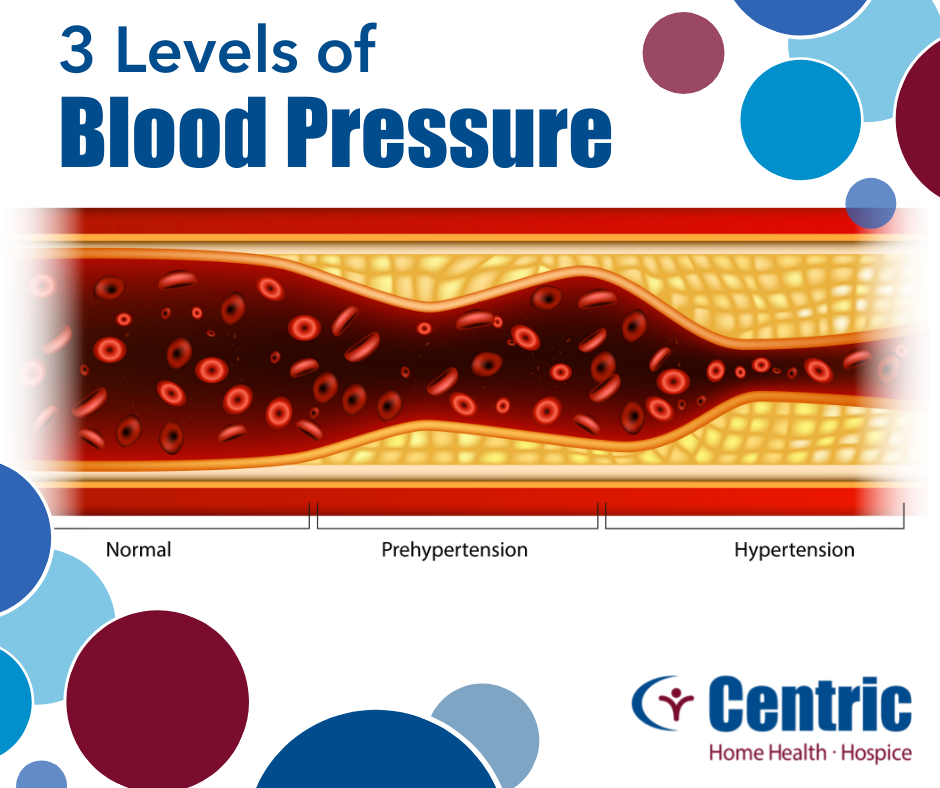
A healthy blood pressure reading is generally considered to be less than 120/80 millimeters of mercury (mmHg) for most adults. The top number is the systolic blood pressure, representing the pressure when the heart contracts and pushes blood out, and the bottom number is the diastolic blood pressure, reflecting the pressure when the heart relaxes between beats and fills with blood. Accurate blood pressure measurement is essential and can be done manually or electronically. To get an accurate reading, it is recommended to rest and stay still for about 5 minutes before the measurement. Blood pressure can be measured at different times of the day, such as in the morning (resting blood pressure) and later in the day (active blood pressure), to provide a more complete picture. Understanding these basics – what blood pressure is and how it's measured – is the first step in safeguarding your heart.
Recognizing the Threat to Your Heart
Hypertension is a medical condition that occurs when blood pressure is consistently elevated, placing excessive force on artery walls and increasing the risk of damage. While many individuals with hypertension may not experience immediate symptoms, it's crucial to be aware of potential signs. Some common signs and symptoms associated with high blood pressure include headaches, dizziness, nausea, shortness of breath, chest pain, and palpitations. It's important to note that, in most cases, these symptoms do not occur immediately but rather develop over time as your blood pressure continues to rise. This is why regular monitoring is so important. If you are experiencing any of these symptoms on a regular basis or notice that they are getting worse, it is important to talk to your doctor right away. Understanding these potential signs is vital for early detection and protecting your heart.
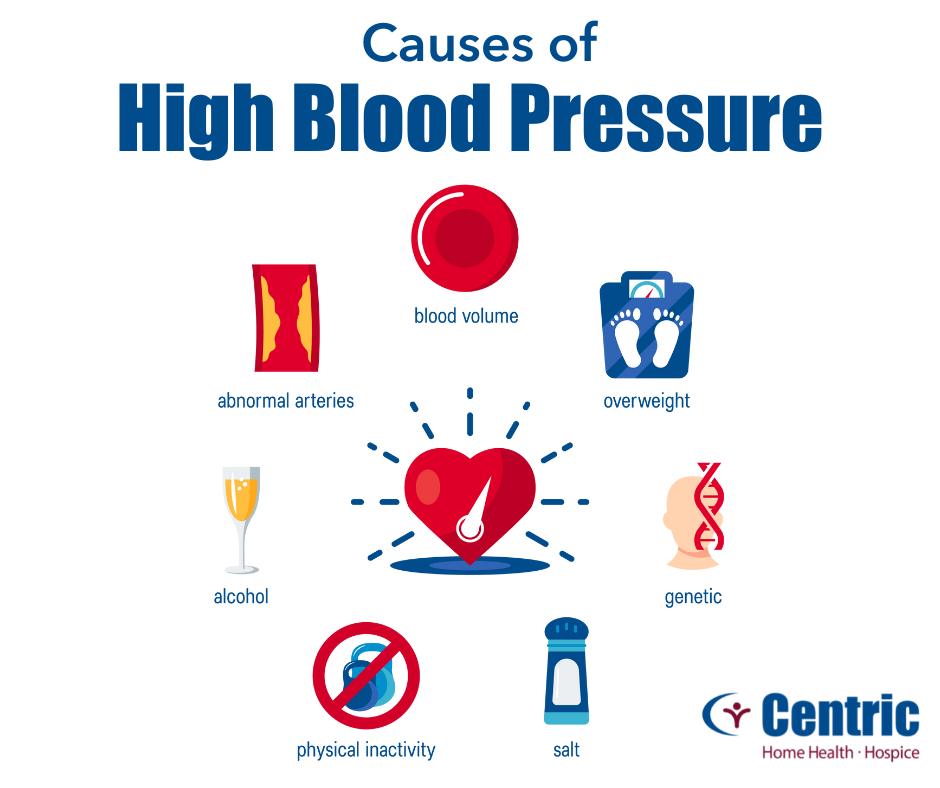
Factors That Influence Your Heart Health
Several factors can contribute to the development of hypertension, impacting your heart health. These include a family history of hypertension, which increases your predisposition to the condition, and increasing age, as blood pressure often rises as we get older. Being overweight or obese significantly increases the risk, as excess weight puts a strain on the heart and blood vessels. A sedentary lifestyle, characterized by insufficient exercise, also contributes to hypertension. Chronic stress can lead to elevated blood pressure levels. Smoking cigarettes or using other tobacco products damages blood vessels and increases the risk. Excessive alcohol consumption can also raise blood pressure. Recognizing these factors allows for proactive steps to mitigate their influence and prioritize heart health.
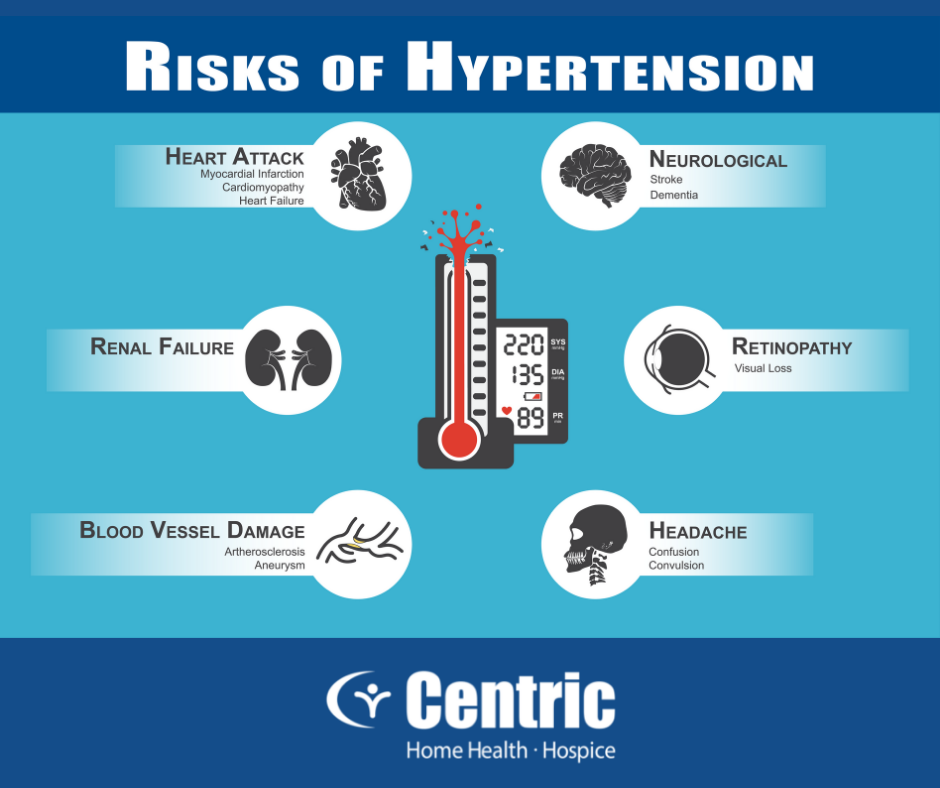
Consequences of Untreated Hypertension
Untreated high blood pressure poses significant risks to heart health and overall well-being. Over time, it can damage arteries, making them less elastic and more prone to plaque buildup, leading to heart disease, including heart failure, heart attack, and stroke. Furthermore, hypertension can negatively affect other organs, such as the kidneys, brain, and eyes, potentially leading to kidney damage, cognitive impairment, and vision loss. Understanding these risks underscores the importance of managing blood pressure for long-term heart health.
Managing Hypertension
Managing hypertension and protecting your heart involves a two-pronged approach: lifestyle changes and, when necessary, medication.
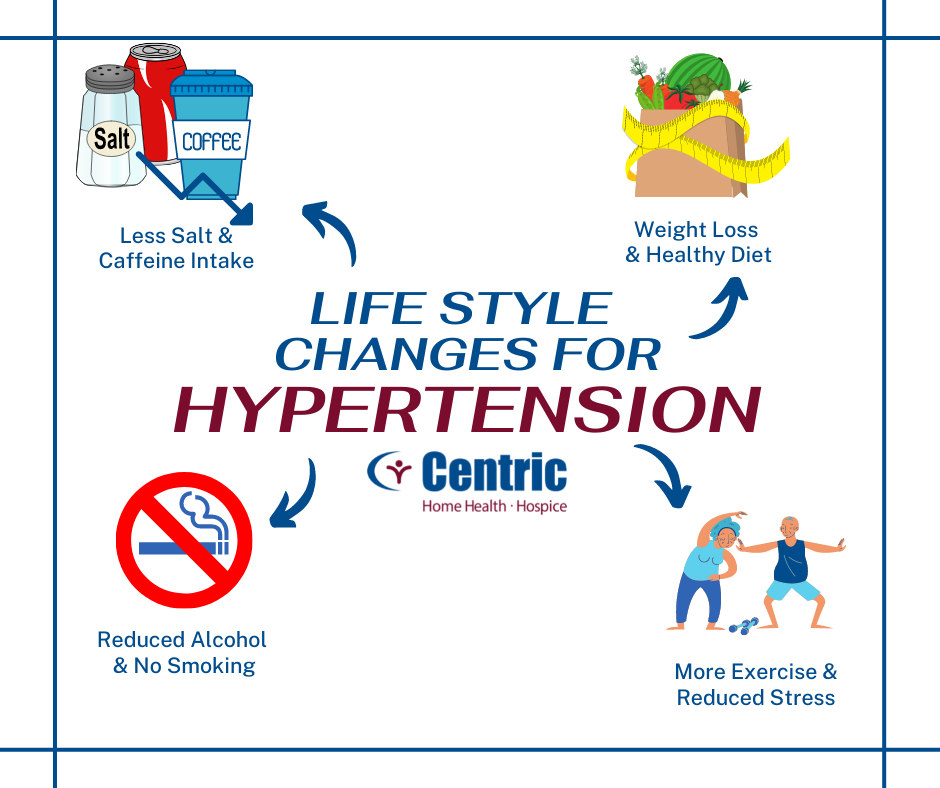
Empowering Your Heart Health
Lifestyle changes are fundamental in managing blood pressure and promoting heart health. Achieving and maintaining a healthy weight is crucial, as being overweight or obese is a major risk factor, and losing even a small amount of weight can help reduce blood pressure. Adopting a heart-healthy diet that emphasizes fresh fruits and vegetables, low-fat dairy, whole grains, and lean protein, while limiting salt, saturated fats, and added sugars, is also essential. Regular exercise, aiming for at least 30 minutes or more on most days, strengthens the heart and improves cardiovascular health; this can be achieved gradually by starting with shorter increments and increasing the duration over time. Reducing stress through techniques like meditation, yoga, or deep breathing is beneficial, as chronic stress can negatively impact heart health. Quitting smoking is paramount, as smoking damages blood vessels and significantly increases heart disease risk. Limiting alcohol intake is also recommended, as excessive alcohol consumption can raise blood pressure.
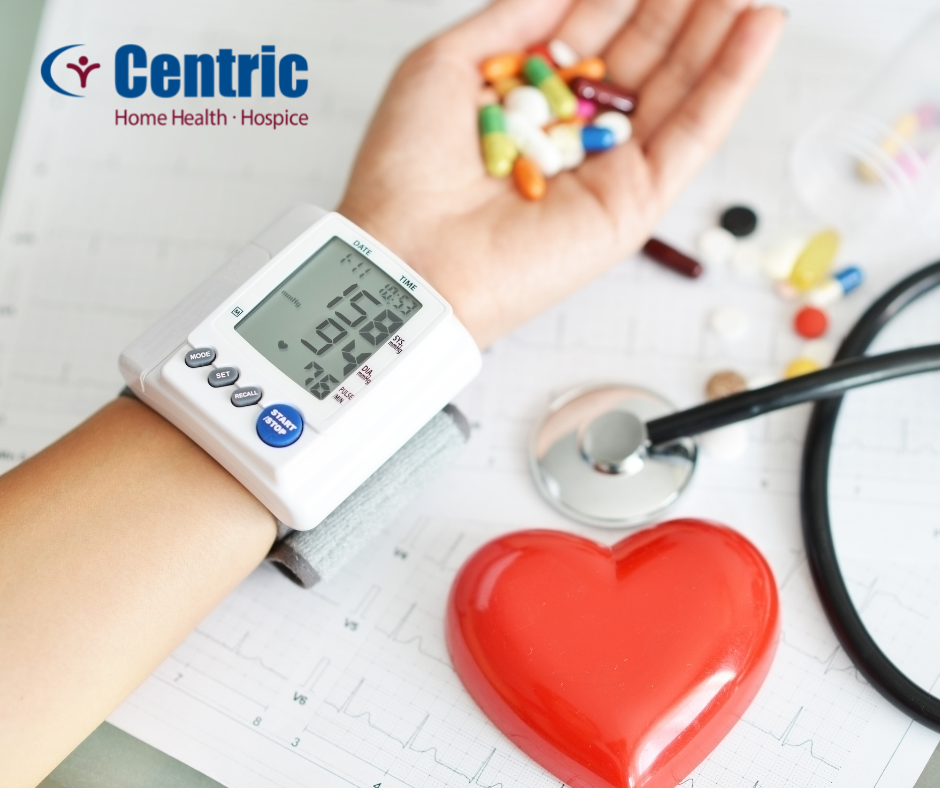
Supporting Your Heart When Needed
If lifestyle changes are insufficient to effectively manage blood pressure, a physician may prescribe medication to manage blood pressure and protect your heart. Various medication options are available, and the doctor will work with the patient to determine the most suitable choice. Common medication classes include diuretics, which help the body eliminate excess salt and water, reducing the heart's workload; ACE inhibitors, which prevent the formation of a substance that narrows blood vessels; and beta-blockers, which slow down the heart rate and reduce the heart's workload. Consulting with a healthcare provider is essential to determine the most appropriate treatment plan for your individual needs.
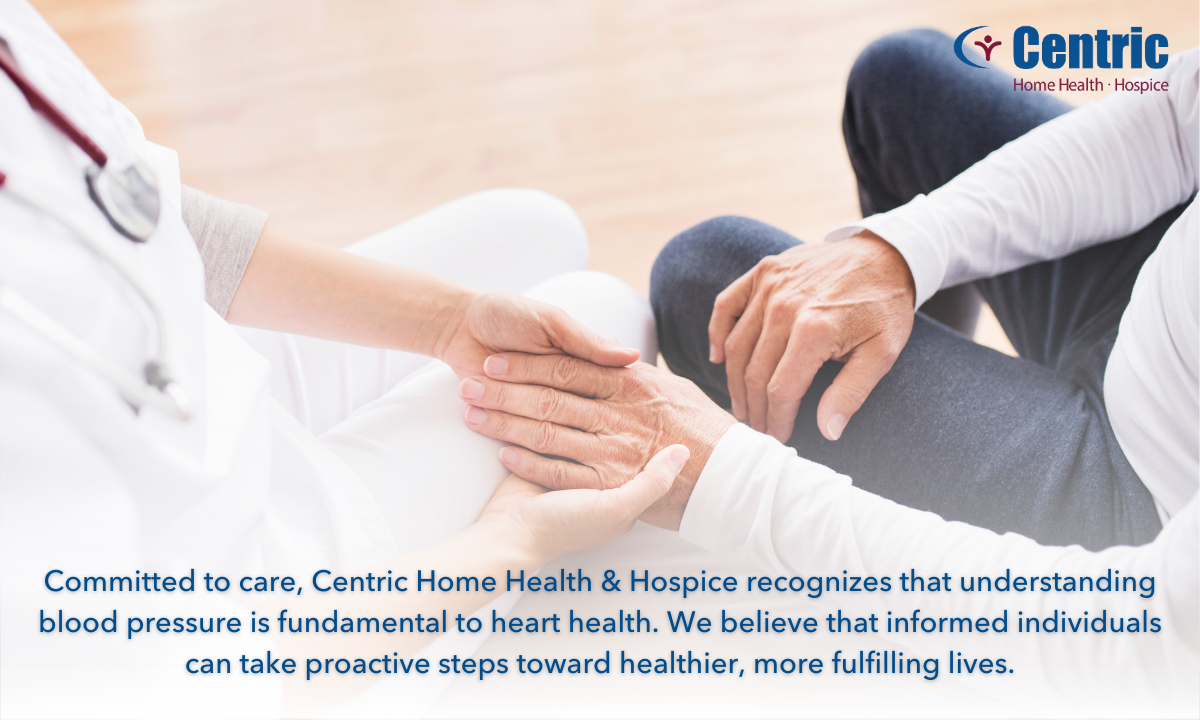
Partnering in Your Heart Health Journey
Centric Home Health & Hospice recognizes the unique challenges of managing hypertension, especially in older adults, where age-related changes can affect blood vessels and heart function. We are committed to providing comprehensive care that addresses the physical, emotional, mental, and spiritual well-being of each patient, supporting them in achieving their overall health goals and promoting heart health.
Understanding blood pressure and hypertension is indeed a key to heart health. By being informed, adopting healthy habits, and working closely with healthcare professionals, individuals can significantly reduce their risk of heart disease and live healthier, more fulfilling lives.
If you or a loved one needs support in managing hypertension, Centric Home Health & Hospice is here to help.
Reach out to us to explore our
services.
Disclaimer: This blog post is for informational purposes only and should not be considered professional medical or legal advice.
Share This On Your Favorite App